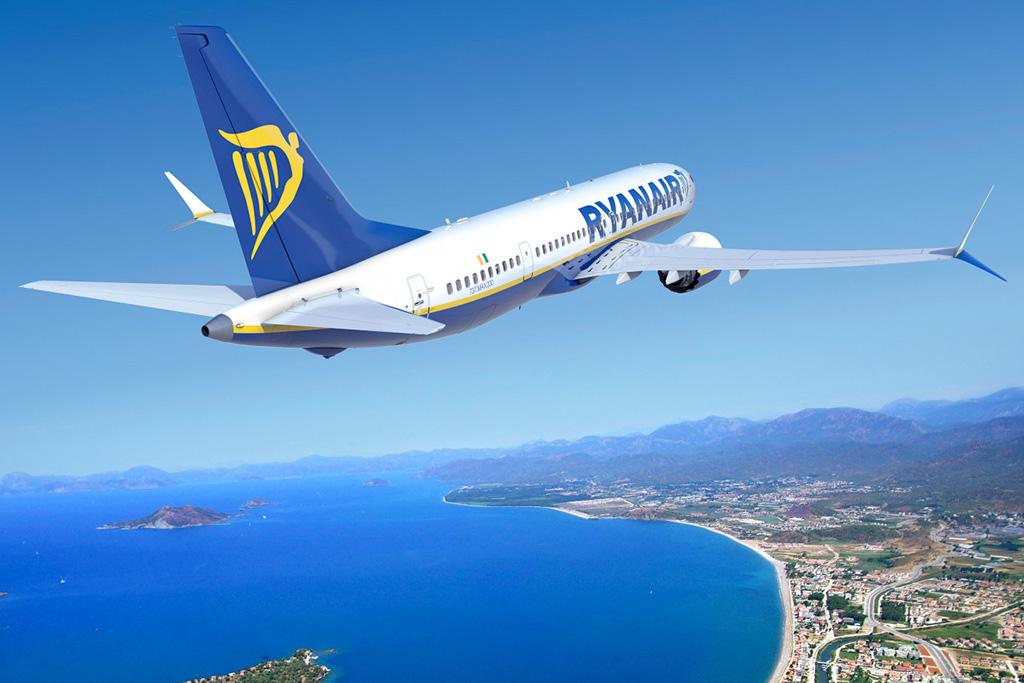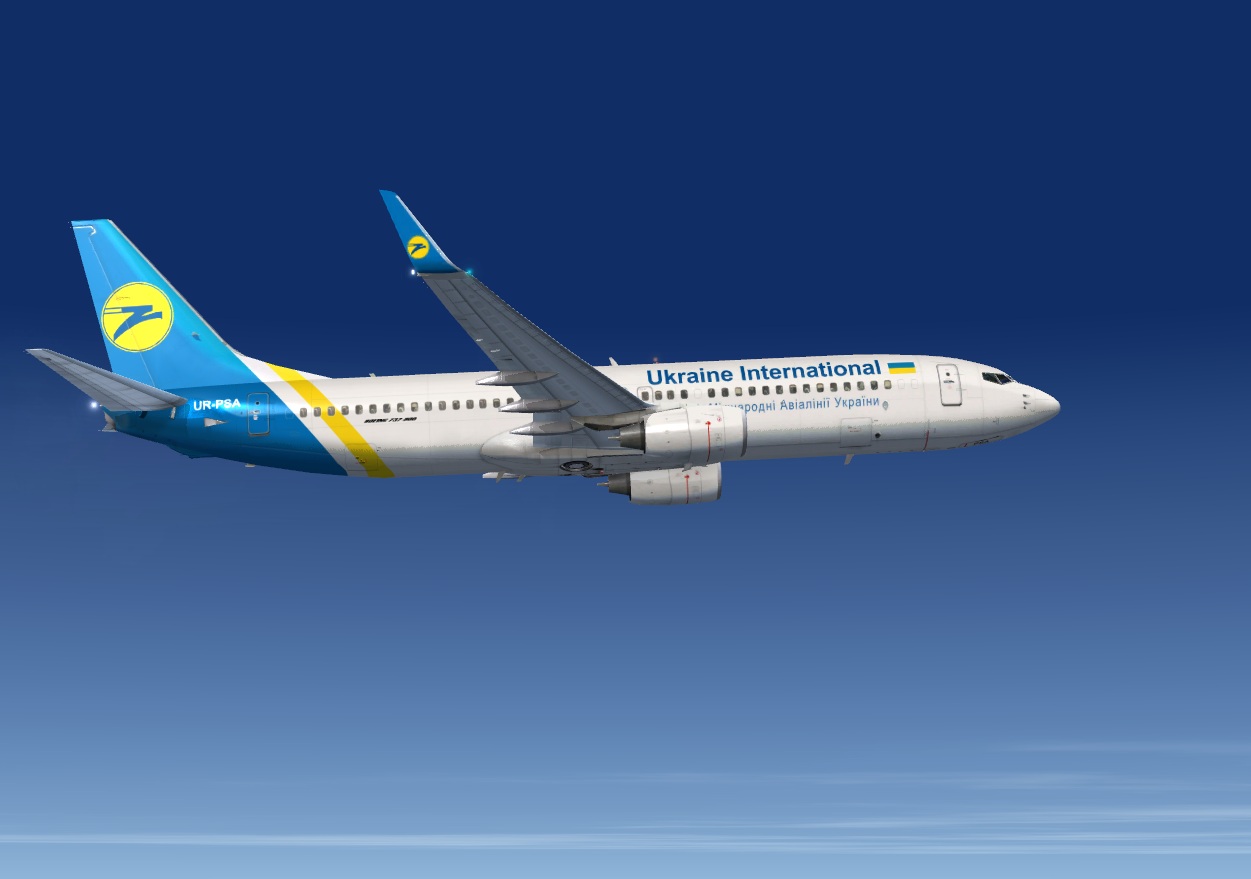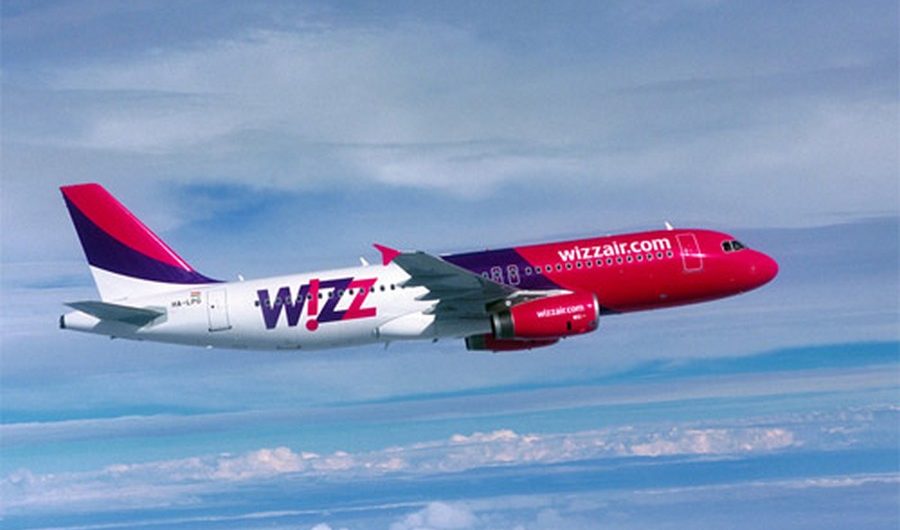On July 10, Pavlo Ryabikin, the head of Ukraine’s main airport Boryspil, where Ryanair was planning to operate, held a press conference. During it, he stated that the airlines and the airport could not come to understanding in the negotiation process. On the same day, it became impossible to purchase tickets on the site of the low-cost airline.
The same day Volodymyr Omelyan, the Minister of Infrastructure of Ukraine put all the blame on Boryspil:
“The aim of the Boryspil airport was to block Ryanair from coming to Ukraine, but not to negotiate. From the first day, it was clear that a full breakdown and sabotage of the agreement is taking place.”
Omelyan also initiated the dismissal of the head of the airport.
However, a number of experts defend the position of the airport, saying that Ryanair is well known as a tough negotiator and that the conditions they demand are indeed hard to fulfill.
So let’s take a look at who wanted what.
The conditions which were negotiated

At the press conference, Ryabikin said that the contract with Ryanair is disadvantageous for Boryspil.
Ryabikin also told that he was politically pressured in terms of working with the low-cost airlines. He also questioned why a memorandum with the carrier was signed at the governmental level.
Among the conditions which Boryspil was opposing was Ryanair’s intention to apply British law in Ukraine when considering disputes. The airport’s side insisted that all the relationships between the sides should be considered in terms of Ukrainian legislation. Also, according to Ryabikin, Ryanair agrees to a fixed airport fee of $7.50 per passenger under the condition of transporting 150,000 passengers per year. The airport in its turn was willing to do so only if the airlines would grow the number of its passengers by 150,000 people per year.
The Ministry of Infrastructure reduced the airport’s per passenger fee of $17. The first document prepared by officials lowered the base rate of the passenger fee for international flights by 25%, from $17 to $13. Other discounts should have made it possible to lower the fee to the $7.50 Ryanair desires.
The Boryspil manager also thinks that some of the Ryanair requirements violate Ukrainian legislation. In particular, the provision of free services such as taxi parking, the rent of space in the terminal, baggage handling systems, ticket sales offices, the provision of space for hotel construction, etc.
“Kyiv airport has chosen to protect high-fare airlines and deprive Ukrainian consumers/visitors access to Europe’s lowest air fares, ” says the statement of Ryanair.
“We regret also that Lviv Airport has fallen victim to Kiev Airport’s decision,” it added.
Ryanair: a tough negotiator

The experts of the market would agree that finding compromises is not what Ryanair would usually do. The specialized media Anna Aero analyzed data from OAG, the leading global provider of digital flight information. According to it, during the last decade, Ryanair has flown from 256 airports and operated over 2,800 routes.
“Of those, over 1,500 routes will be flown from 201 airports in 2017. This highlights just how many routes the airline has tried and dropped in the last decade, bearing in mind that a key component of the Ryanair strategy is ‘market-making’ – using its vast resources and capacity to simply ‘try out’ routes between different regional cities that previously no other airline would dream of, and for which market demand data is non-existent,” explains the media.
So if talking about Ryanair leaving a market, the Ukrainian case is not as unique as Ukrainian society first thought.
“Over the years, Ryanair has earned a reputation of a tough negotiator who either receives what he wants or leaves even if it’s harmful to himself. It’s pure game theory – if you give in one time, others will expect concessions for themselves. And in the long-term perspective, one concession can cost more than a lost profit from a lost contract,” says Volodymyr Bilotkach, the co-editor of the Journal of Air Transport Management.
He also notes that the company might have overestimated its chances to earn from Ukrainian market. And when they realized it, they just decided to leave:
“It’s so typical of Ryanair to not acknowledge their mistake.”
Still, there was a time for Boryspil to negotiate. The experts point out that the airport was simply looking for a reason to say “no”:
“The airlines and the airport could not agree because one of the sides obviously did not want it and clearly shows that it is coerced and that low cost means losses. Boryspil demonstrated its inability to earn on this airlines. And the best brains of the airport were busy with publicly explaining why. However, if these brains were busy with studying opportunities for the airport to agree, they would find a compromise,” says Andriy Guk, the partner of the law company Anta.
Boryspil: a corruption hub

Corruption. The airport Boryspil is a well-known corruption hub in Ukraine. Probably, the most telling examples of corruption here were observed during the preparations to the European Football Championship 2012, when new infrastructure was built. Back then, media reported that up to the kickbacks for the majority of projects (not only in Boryspil) were estimated to be as much as 40%.
Even 5 years later, suspicious decisions regarding infrastructure are made in Boryspil. Recently Pavlo Ryabkin announced that the airport intends to build a new cargo terminal until 2020 and that now the management is looking for finances for this project. But at the same time, two out of five terminals of the airport are not being used and could play the role of a cargo terminal.
Management.
“The management of the airport changes very often and there is no single strategy on its development. Every new team comes with a new strategy. Everybody likes to build new terminals but not use what is already available. This desire is closely connected with the Ukrainian mentality and corruption,” says Oleksandr Kava, ex-deputy Minister of Infrastructure of Ukraine, an expert of the transport industry.
The current manager Ryabikin was appointed at the end of 2016 as a result of a competition, after several years that Boryspil did not have a head.
“There are a lot of questions about the competition itself, as the short-list [the official one] had not been published,” writes Novoe Vremya. According to one of the sources, Ryabikin used to study in the Kyiv Institute of International Relations together with the future president Petro Poroshenko.
Boryspil has an excess passenger capacity, according to Kava:
“The enterprise’s capacity is to serve more than 30 mn passengers per year. However, in 2016 the passenger traffic was only 8.62 mn. The new management of Boryspil expects to increase the indicators of the passenger traffic up to 10 mn before the end of 2017.”
Ukrainian International Airlines: the monopolist

Ukrainian International Airlines (UIA), the monopolist in the area, is believed to be the third party which is not interested in Ryanair entering the Ukrainian market. UIA was founded as a state company in 1992 and was privatized in 2011. Now one of its final beneficiaries is oligarch Ihor Kolomoyskyi.
Other market players had on numerous occasions complained that UIA has preferences in Boryspil:
“We found out that the state enterprise International Airport Boryspil gave a 80% discount to UIA. This amount raises a logical question: what should the profitability of the airport be for it to be able to give such a discount?” asked MP Yuriy Derevianko.
“The main opponent Ryanair, which is now coming to the Ukrainian market, is UIA. They realize that if the low cost airlines come to Kyiv under the stated conditions, probably in 3 years the [UIA] airlines will go bankrupt. Four declared flights is a very soft start for Ryanair. It’s possible that this is a strategy to lull the vigilance of the competitors on the local market: to start flights from routes which are secondary for Ukrainian airlines, agree on the framework conditions, and then start to work in full play. I can assume that in the next seasons, Ryanair was planning to open many more flights to key European destinations from Kyiv. It threatened to obliterate the network model of UIA,” said Serhiy Hyzhnyak, the expert of the aviation industry.
According to the Ministry of Infrastructure, the UIA has a state debt of UAH 295.5 mn ($11. 4 mn).
The state and the oligarch
From the start of the process, the Ministry of Infrastructure and is Minister Volodymyr Omelyan were involved in it.
For example, as mentioned above, the Ministry even reduced the Boryspil Airport’s per passenger fee because of Ryanair.
After Ryanair announced that it is leaving the market, Prime Minister Volodymyr Groysman jumped in. He announced that talks with Ryanair will continue. Groysman said he held a special meeting with the leadership of the infrastructure and justice ministries, Boryspil Airport, Airports Association of Ukraine and Office of Investment Promotion and Support. In result, the following was agreed upon, according to Vitalii Rybak writing for Ukraine World:
- The National Anti-Corruption Bureau and the Antimonopoly Committee of Ukraine will assess the entire negotiation process regarding compliance with the legislation and conditions of the competition. The infrastructure and justice ministries and the Boryspil airport will participate as well;
- The negotiation process with Ryanair will continue. Daniel Bilak, the director of the Investment Promotion Office, will be involved alongside the infrastructure ministry and Boryspil airport.
It is likely that the position of the UIA might change, considering the relationship of the government with the airlines’ main beneficiary Kolomoyskyi. The collaboration of the government and the oligarchs in Ukraine is not simple to grasp.
During the last three years, the oligarch was the main target of the “de-oligarchization” in Ukraine, while the richest oligarch of the country Rinat Akhmetov remains untouched.
The last major encounter between the oligarchs and the state took place in early 2017 when Kolomoyskyi’s Privat Bank was nationalized.
As for the UIA, Ukrainian market players say that the airlines were a bargaining chip between the government and Kolomoyskyi:
“I have no facts, but it is rumored at the market that there was a backstage bargain between the authorities and the Privat Group [Kolomoyskyi is one of its owners – OM] on the eve of the parliamentary vote for the appointment of Yuriy Lutsenko as the Prosecutor General. The control over the air market was the subject,” said Rodrig Merhezh, the owner of the airline Um Air in his interview with delo.ua in May 2016.
So it might happen that soon the state also will finish the UIA chapter of Kolomoyskyi’s business.
Is the game over?

Not only Groysman says there is still hope that Ryanair will stay. Tetiana Romanovska, Chief Executive of the Danylo Halytskyi Airport in Lviv, which was also going to cooperate with the airlines, also commented on the news:
“Today there was a call from the Ryanair airlines with the bad news about stopping ticket sales for flights from Lviv and Kyiv… It was a long conversation and not the only one… I was told compliments, they were apologizing… After they heard our disappointment, our position,[…] and the assurance that so many things have been done and that we want to see Ryanair, I was told that there is a little more time for adjusting the corresponding conditions of the agreement with Boryspil.”
However, on 12 July Ryanair stated that “it was nothing to add to the press release from 10 July,” where it announced it is leaving Ukraine.
While negotiations are likely to continue, the fact the Ryanair already stirred up the Ukrainian market is undeniable.
First, the abovementioned reduction of the airport fees by 23.5% is called to stimulate the growth of air transportation, free competition, and will give the opportunity for passengers to have cheaper tickets and a larger choice
More positive results may follow if the government indeed will start to fight corruption in the airport under pressure from society.
Also, the possible arrival of Ryanair made other airlines review their tariffs. UIA introduced its new tariffs with significantly lower prices which could compete with the tariffs of low-cost airlines.
When Ryanair announced it is leaving the market, another low-cost airline operating in Ukraine, the Hungarian WizzAir, started providing discounts for passengers affected by the cancellation of Ryanair flights.
Also, WizzAir announced it was introducing new flights – from Kyiv to Lisbon and Tallinn.
Read more:
- Ryanair canceled its plans to enter Ukrainian market. Is the story over?
Ryanair comes to Ukraine with 9 flights from Kyiv and Lviv - Wizz Air to launch four new flights to Ukraine
- Major European low-cost airlines to revolutionize Ukrainian air passenger market
- Nationalization of PrivatBank, Ukraine’s largest bank, explained




